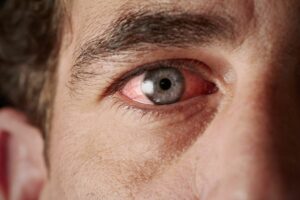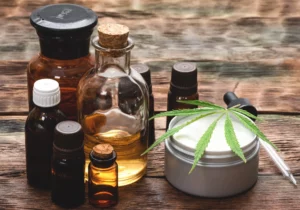Many factors determine how long cannabis can linger in the body and whether it can show up on a drug test, including the frequency and amount of cannabis you use and the kind of test you take. Cannabis lingers in the body longer than alcohol and many other drugs because it’s stored in body fat, so it can show up days or even weeks after you’ve used it.
Whether you’re consuming cannabis for medical purposes or just for fun, you may want to know whether it will show up in standard drug testing.
Article Highlights:
- Drug tests for cannabis use are really testing for the presence of THC
- Different types of tests can deliver different results
- Factors can affect the outcome of a drug test include body fat and the type and amount of cannabis you consume
- Abstaining from cannabis for a few weeks before a test can reduce the risk of a positive result
How Do Drug Tests Detect Cannabis?
Drug testing for cannabis is designed to detect just one thing: the presence of THC. That’s the psychoactive compound that causes the feel-good “high” and keeps cannabis on the US government’s Schedule 1 list of harmful and highly regulated drugs. Because of the way it’s metabolized in the body, THC can be detectable for several days to several weeks after use.
In the case of smoked marijuana, THC peaks rapidly in the first few minutes after inhaling, often to levels above 100 ng/ml in blood plasma. It then declines quickly to single-digit levels within an hour. THC can remain at low but detectable levels of 1-2 ng/ml for 8 hours or more without any measurable signs of impairment in one-time users. In chronic users, detectable amounts of blood THC can persist for days or weeks, even if you’ve stopped using cannabis and aren’t showing any signs of impairment.
Although most places of employment and institutions like hospitals rely on the typical urine test, saliva, blood and hair can also be tested for traces of various drugs, including cannabis. These tests can vary considerably in their ability to detect recent or current cannabis use.
Each type of drug test has its own “detection window” for cannabis. Saliva tests typically detect cannabis use for just a few hours. Urine tests are often used to check for a variety of drugs including, but not limited to cannabis, and they can show positive for around three to 10 days. Blood and hair testing can reveal the presence of THC for up to 30 days.
But a routine blood test taken for medical reasons isn’t likely to reveal cannabis use. That’s because blood testing for illicit drug use is designed to check for specific markers of alcohol and other drugs, including the metabolites of THC. If drug use including cannabis is relevant to your medical condition, your doctor might also check for that with additional drug screening.
What Can Affect the Results of a Drug Test?
Alcohol and other drugs can vanish from the body in as little as a few hours. But THC is a lipid-soluble compound, which means it accumulates in the body’s fat (lipid) cells. Because THC binds to the body’s fat cells, the more cannabis you consume, the greater the accumulation of THC in those cells. That’s why it can take weeks to clear your system completely after stopping cannabis.
Other factors affect the outcome of a cannabis drug test, too. THC can clear the system of a first-time cannabis user in as little as three days. For someone who uses cannabis regularly but infrequently, perhaps three or four times a week, it can take around five to seven days. But for frequent users (one or more times a day) THC can linger in the system for weeks, up to a month.
Your body type also plays a role in how long THC sticks around. Since THC binds to fat cells, it can take people with more body fat longer to eliminate cannabis, especially if they use it often. That can be especially true for women, who generally have more body fat than men.
Exercise can affect a drug test, too. Exercising can cause fat cells to release THC, so that THC levels in the blood temporarily increase. Dehydration can also increase THC levels, which can raise the risk of a positive blood or urine test.
Can a Drug Test Detect Other Cannabis Compounds?
Drug tests are designed to detect the presence of THC, so they don’t target other non-psychoactive cannabis compounds like CBD or CBN. Products containing these and similar compounds must contain less than 0.3 percent THC, or none at all. But it’s still possible to test positive for cannabis even if you’re only using products containing CBD and other cannabinoids, since some of these products may contain more THC than they claim.
Standard drug testing also won’t detect the use of topical cannabis products, since the skin’s layers create a barrier that prevents these products from entering the bloodstream. One exception to this is THC transdermal patches, which deliver the benefits of THC for pain control and other medical issues without the “high.” Because these patches deliver THC into the bloodstream, they can trigger a positive drug test result.
There isn’t a way to speed up the metabolism to get rid of THC faster, but if you expect to be in a situation that requires drug testing such as an employment screening, plan to stop consuming cannabis for a few weeks beforehand.





